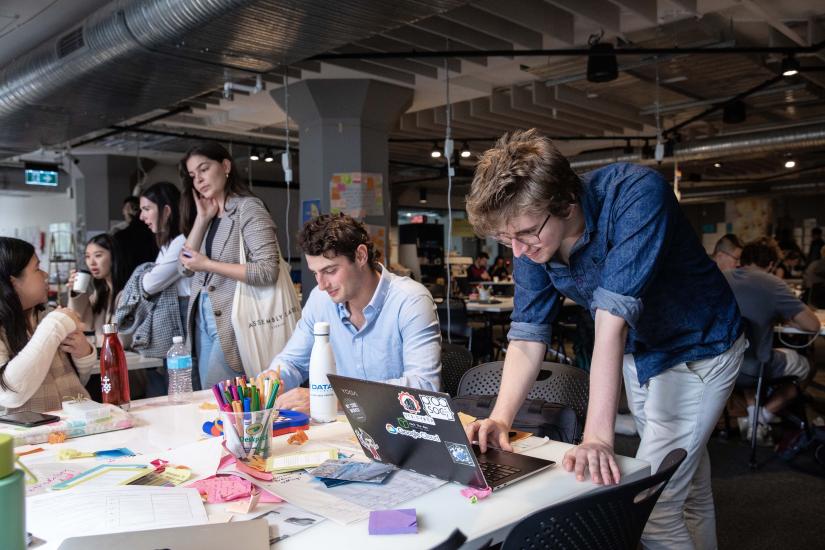Climate solutions: art or science?
The wicked problems of a changing climate are repeatedly ‘solved’ by shiny innovations that look good, and receive early funding and accolades. But like all shiny new business ventures, they’re also likely to fail.
Perhaps, in a more traditional economic market, failure wouldn’t matter so much.
But as individuals and researchers turn their attention to tackling complex and networked problems of a moral nature, shouldn’t a more considered approach be taken to ensure success?
It’s something Dr Paul Brown, Course Director of the Diploma in Innovation, is teaching undergraduate students through a suite of subjects that look to build robust market solutions to environmental and social problems.
“There’s already a lot of people doing work on sustainable innovation, but a number of those projects will never be achieved because while they may be environmentally sustainable, they may not be financially sustainable,” he said.
“And then there's this other group of projects, which are financially sustainable but they're not environmentally sustainable.”

Photo credit: Maja Baska
Dr Brown said it’s a significant challenge for both for universities and the economy to deliver on environmental motivations for innovation. By using an integrated model of education that unites research into technologies, industry mentoring and business modelling techniques, he hopes to change this pattern.
Through the Diploma in Innovation, students studying a range of different undergraduate degrees at UTS such as law, science, engineering, business, health sciences and communications are identifying novel technologies and modelling their potential for environmental and economic sustainability.
“It’s work we don’t normally do with undergraduate students, we normally do it with postgraduate students or postdoctoral research – but it’s working to equip students with the skills to better identify which emerging technologies and production systems are more likely to be winners and losers as society evolves,” Dr Brown said.
One subject in particular, Sustainability and Complexity, helps students develop their own projects that leverage existing technology in solving for complex climate challenges facing communities and industry.
“It’s not just about students learning,” Dr Brown said.
“Some might raise capital, or go to market, or have a basis for further research.”
Throughout the subject, students receive mentorship and input from industry partners including not for profits, startups, consultancies, and corporates.
It’s a two-way value exchange, helping the students to develop projects that are both environmentally and financially successful while informing industry of research and practise that could change the way they do business.
This enables students to learn, while also contributing their transdisciplinary practise to solve major societal problems, said Dr Brown.
Students have been genuinely surprised by the quality and depth of work they have developed in one subject, and equally, partners are enthusiastic about these engagements informing their fundraising and business models.
– Dr Paul Brown, Course Director of Diploma in Innovation
“Students have been genuinely surprised by the quality and depth of work they have developed in one subject, and equally, partners are enthusiastic about these engagements informing their fundraising and business models.”
Dr Brown and his wider academic team plan to continue scaling this learning environment, seeing it as an educational intervention to existing market trends that hinder climate progress.
“These projects could lead to further research, collaboration and greater climate impact or learnings for UTS and the wider university sector.”
